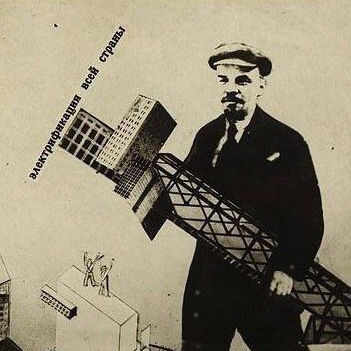In comparison, the story of my abusive ableist family who is a member of the victims of Communism do not even have relevance to Communism at all. Instead, their claim is that they are fleeing from poverty from overpopulation, poor economy, and hostile social conditions that existed before the Communist takeover. Although my family did not mention the exact reason for their departure from mainland China, my family indicated that they fled around 1950 right before the Communist takeover and during the rule by Chinese warlords which means that my family have connection to the Chinese warlords or Chinese nationalists. The approximate date of departure also means that all the complains that my family made about mainland Chinese government are based on the former Chinese warlords and has no relevance to the actual Communist government that existed. My family’s greater value of economic prosperity over democracy is further proven by their change of allegiance where they now support the actions by Communist Party of China from their ability to transform China into a superpower despite their fear to return to mainland China.
Apart from decommissioning local Nazis to a permanent end during and after WWII, what exactly is it that the three Baltic chihuahuas are accusing the evil communists of doing to them? As far as I know things in the Baltics were normal and peaceful there when they were part of the USSR.
You never hear anything but vague blanket statements, assuming the ontological evil of the USSR. Is there any concrete acts or practices or policies or events the anti-communist crybabies point to to demonstrate how mean the “Soviet occupation” was to them?
Failed to remove undesirable elements of their society
Comminemism no food
Reading about her dad on wikipedia, it seems he made a shift to the right as well after the fall of the Soviet Union and he’s a politician for the same liberal party as his daughter
This scenario serves as an excellent example of the significance of systemic analysis. The Soviet system’s selection pressures encouraged individuals to channel their energy towards productive endeavors. Even opportunists like Kallas were compelled to contribute positively to society in order to advance. However, following the counter-revolution, these same people quickly adapted to exploiting societal resources for personal gain, highlighting the importance of the relationship between the rules of society and personal behavior.
I’m a little embarrassed that hadn’t quite occurred to me before. I’ve sorta always looked at the functions of political reeducation and anticorruption as more-or-less the sole means of changing or redirecting reactionary tendencies.
We’re all here to learn. :)
Do you know any literature you could recommend please - if possible - that explores what you said? (Well before I came across ML I have long thought the flipside of the coin you are mentioning; that capitalism brings out the worst in society, the most sociopathic and malignant characteristics of what we consider the human condition is what is amplified, promoted and successful. However, I do not have a background in philosophy and I feel I have only scratched the surface of dialectics and materialism)
Not of top of my head, this was a realization I had a while back when I was chatting with a friend of mine about the fall of USSR and how quickly the society transformed itself under new social order. It does stem from dialectical analysis however.
There is a central contradiction between the individual and society itself. Individuals are inherently driven by their personal interests and goals, shaped by their unique experiences and material circumstances. Conversely, society establishes a framework of rules, norms, and values, that arise from the material conditions and power dynamics within that society.
Individuals strive to fulfill their desires within the constraints of societal expectations. Meanwhile, societal rules guide their behavior by establishing incentives and disincentives that either encourage or discourage specific actions. This dynamic relationship between personal desires and societal constraints is a dialectical process of constant tension and resolution. Individual actions challenge and reshape societal norms, just as societal changes can influence individual desires and behaviors.
I don’t have specific literature to recommend but you might be able to find literature in a similar vein which discusses this last paragraph of Ch. 2 of the Communist Manifesto:
In place of the old bourgeois society, with its classes and class antagonisms, we shall have an association, in which the free development of each is the condition for the free development of all.
I take this section to mean that the material interests of individuals is no longer in contradiction with, in fact completely bound up with the material interests of society at large. So the things which benefit society also directly benefit the individual. This is in comparison to capitalism where things which increase profit for capital are directly at odds with individual development.







